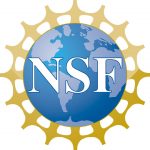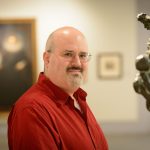Seeking mental health care can be a hard decision, especially for student-athletes in the spotlight on college campuses. The stereotypes and expectations can weigh heavily on players, putting them in a unique position few understand better than Clewiston Challenger, an assistant professor of counseling in the Neag School of Education and a former UConn football player.
Despite the growing numbers of English-language learners in U.S. schools, their representation in gifted and talented programs continues to lag behind not only their native English-speaking peers, but also other underserved populations, including black and Hispanic students and children from low-income families.
The root of the problem is the procedures and policies that most schools use to identify gifted students beacuse they frequently overlook academically talented English-learners, a report from the National Center for Research on Gifted Education found.
Spend any amount of time around kids and it quickly becomes evident that they need to move. Running, jumping, and dancing are not just outlets for the limitless childhood energy we wish we could bottle up and use as adults — they are another form of literacy.
“The last thing I’d want to hear my pilot saying is something like, ‘It’s a routine flight, there’s this body of water here, I thought I could try this creative water landing I’ve been thinking about.’”
We talked with the Board of Trustees Distinguished Professor of Educational Psychology in the Neag School of Education this spring. Sandra Chafouleas was seeking summer reads that would “stretch her in new ways” but also relate to the field of study she’s so passionate about.
There is a wide divide between political debates about the teaching of reading and the actual instruction students receive in classrooms. The sloppy, mudslinging nature of these debates has led to confusion, distrust and a tribe-like affiliation with single approaches among practitioners, researchers and policymakers.
“One major issue is the fact that many of the students are Spanish-dominant or Spanish monolingual, which means that they are likely classified as English learners and therefore require specialized instruction from certified teachers, along with ongoing monitoring,” Liz Howard said.
Students from the UConn ScHOLA2RS House Learning Community visited Washington, D.C. last week to attend events surrounding the Congressional Black Caucus Annual Legislative Conference. While there, they met with UConn alumni and Connecticut legislators at a special networking reception honoring the students and their supporters.
Two research projects co-led by professors in the Neag School of Education have recently been awarded a total of more than $2.5 million in federal funding, made available through the National Science Foundation (NSF).
Professor James Kaufman, the author/editor of more than 35 books, is interviewed in this piece focused on books and reading, which originally appeared on The Readings Lists blog.


